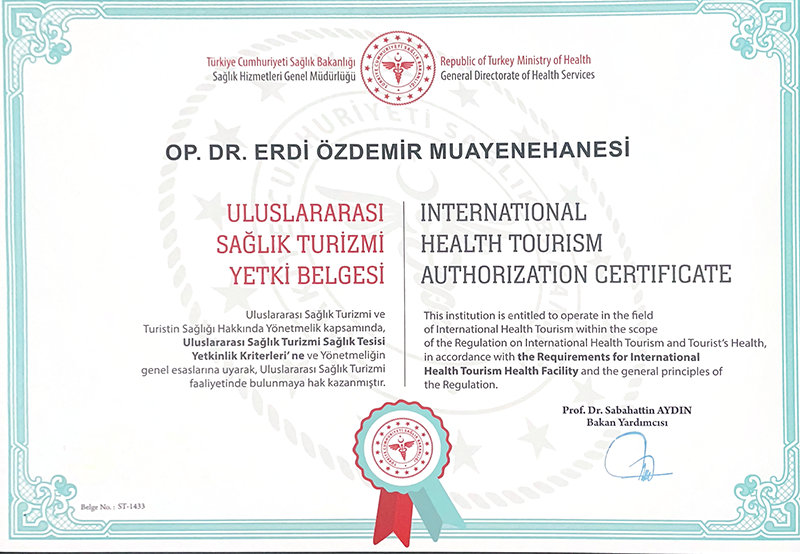Sinusitis Surgery

Endoscopic Sinus Surgery - Sinusitis Surgery
What is Endoscopic Sinus Surgery(Sinusitis Surgery)?
Endoscopic sinus surgery (Sinusitis Surgery) is a surgical procedure used to remove blockages in the sinuses. These blockages cause sinusitis, in which the sinus mucous membranes become swollen and blocked. This causes pain, drainage and respiratory disorders.
Chronic sinusitis is a disease characterized by prolonged infection and inflammation of the sinuses. Acute sinusitis can be treated with medication within 5 to 10 weeks. If medication does not work, we can say that chronic sinusitis has occurred. Patients with chronic sinusitis experience various symptoms such as severe headaches, facial pressure, nasal congestion, discolored nasal discharge. The diagnosis of sinusitis should only be made after careful evaluation by your doctor. In most patients with sinusitis, infections can be successfully treated with medications. However, for a small percentage of patients, infections recur or persist even after long-term drug treatments. These patients usually require surgical intervention.
Who Can Have Sinusitis Surgery?
It can be applied to those who have poor quality of life, those who do not benefit from oral drug treatments, and anyone who does not have any other general health problems. It is not recommended for pregnant women, breastfeeding women and those with different health problems. Op.Dr. Erdi Özdemir will give you more detailed information during the appointment. He will tell you whether you are a suitable candidate before surgery.
What Should Be Done Before Sinusitis Surgery?
In preparation for your surgery, your doctor may prescribe pre-operative medications to optimize the condition of your sinuses for surgery. Medications may include antibiotics and/or oral steroids. It is important to take these drugs. Medications such as blood thinners Aspirin should not be taken before surgery. In addition, some herbal medicines should not be taken. Smoking and alcohol consumption should be minimized. You must have a companion during your surgery. If there are drugs you are allergic to, you should inform your doctor.
How is Sinusitis Surgery Performed?
Sinusitis surgery is performed under general anesthesia. Your doctor prepares you for surgery after a number of tests and procedures. The operation is performed with an endoscope, and if it is chronic sinusitis, clogged sinus channels are opened and diseased tissues are removed. In nasal polyps, all polyps that fill the sinuses are removed without touching the mucosa. If the sinuses are tumorous, the tumor is removed with the tissue.
How Long Does Sinusitis Surgery Take?
The duration of the operation takes approximately 1 or 2 hours, depending on the procedure to be performed. As a result of your doctor's evaluation of your post-operative condition, you can go home the same day or stay under observation for one night. If the middle bone of the nose is not touched during the operation, the tampon is not used.
How Does the Recovery Process of Sinusitis Surgery Work?
Complete recovery after surgery takes 10 days. The first check is done after 2 days, if any, the tampon is removed. Severe pain or pain is not felt after the surgery. However, the pain that will occur can be relieved with painkillers such as headaches. The bruises and swellings in the area pass within a few days. Your doctor may give you antibiotics. Nasal sprays containing cortisone can be used in patients with polyps.
What are the Points to Be Considered After the Surgery?
You must follow your doctor's post-operative recovery protocols to further reduce the possibility of bleeding and swelling. In addition, what you need to do;
• The head must be lifted while sleeping.
• Do not blow your nose for several days.
• Do not touch your nose while wearing clothes until healed.
• Avoid heavy exercise for 2 weeks to avoid nosebleeds.
Is Sinusitis Surgery Risky?
As with any surgical operation, it carries the potential risks for bleeding, infection and anesthetic reaction. Other possible risks specific to surgery include:
• Constant bleeding from the nose
• Carotid artery tear
• Complications due to infection
• Ocular complications (such as eye movement disorder, intraocular bleeding, orbital trauma.)
• Loss of smell
• Excessive bruising, swelling
When these situations occur, you should immediately contact your doctor who performed your surgery.
Working Time
- Mon-Fri 9:00 - 20:00
Saturday 09:00 - 18:00
Sunday Closed
Contact Info
-
Phone: +90 542 806 26 67
- info@erdiozdemir.com









